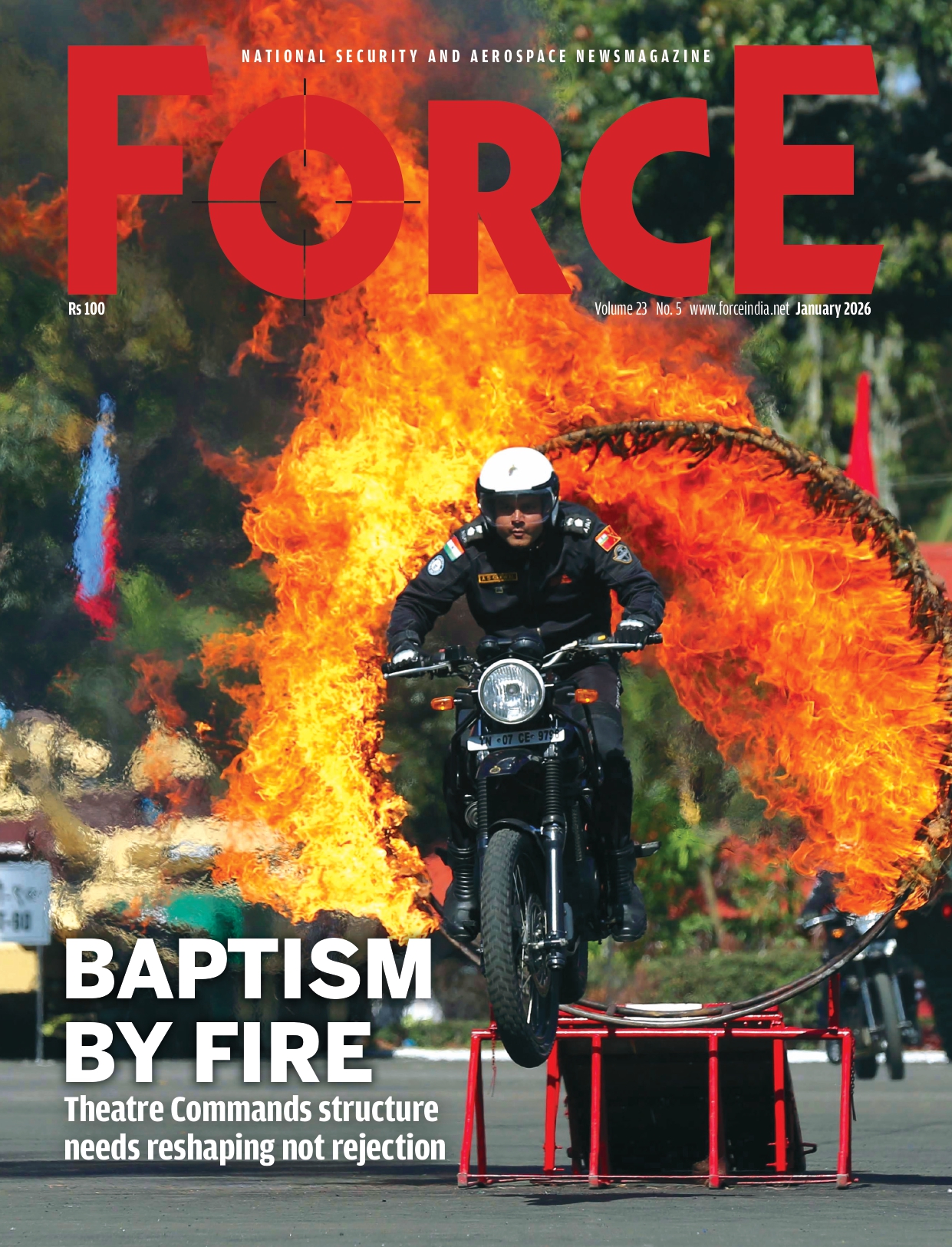Encounter in the Forest
Subhashis Mittra 
The nondescript
Korgotalu hill on the Chhattisgarh-Telangana border (Bijapur and Mulugu
districts of the two states respectively) has suddenly shot into limelight. Certainly
not because the hilly tracts are home to wild animals, including bears, insects
and bees, apart from water bodies and natural caves. But, for the fact that the
dense jungle makes the place an ideal haven for Naxals, making Bijapur one of
the six most Naxal violence-hit districts in the country.
Undaunted by the difficult terrain, security forces led by the Central
Reserve Police Force (CRPF) and Chhattisgarh Police units gave a ‘deadly blow’
to the armed cadres of the Naxalites, claiming to have killed 31 Maoists
recently.
As collateral damage, a total of 18 troops were injured, some of them
seriously, though there was no fatality on the security side. CRPF assistant commandant
Sagar Borade lost his leg in an improvised explosive device (IED) blast in
course of the operation. Five security personnel—three CoBRA commandos of the
CRPF, a CRPF jawan and a District Reserve Guard (DRG) of the Chhattisgarh
Police—were airlifted from Raipur to Delhi and admitted in AIIMS for treatment
of injuries. They had to undergo amputation.
In a post on X, Prime Minister Narendra Modi said the killing of 31
Naxalites along the Chhattisgarh-Telangana border underscores that the
government’s campaign to root out Left-Wing Extremism (LWE) is moving in the
right direction. Modi said his government is committed to establishing peace in
the Naxal-affected region and connecting it to the mainstream of development.
Union home minister Amit Shah met the injured in AIIMS, New Delhi. Lauding
the big achievement, he described it as a historic breakthrough by the security
forces in their resolve to make the country Naxal-free with this killing. “I
once again assure the countrymen that India is sure to be Naxal-free by 31 March
2026,” Shah wrote in Hindi on X.
He said the brave soldiers carried out an operation for 21 continuous
days on the Chhattisgarh-Telangana border and killed 31 Naxalites. The whole
country is proud of the bravery and courage of these soldiers, he added.
Chhattisgarh chief minister Vishnu Deo Sai celebrated the success with
the jawans. “Braving 44 degree C heat, you have shown exemplary courage during
the operation. Hats off to your indomitable spirit,” he said at a remote
village in Bijapur district, right next to Telangana border, where he shared a meal
with the troops to boost their morale.
The forces said the 21-day-lo
Subscribe To Force
Fuel Fearless Journalism with Your Yearly Subscription
SUBSCRIBE NOW
We don’t tell you how to do your job…
But we put the environment in which you do your job in perspective, so that when you step out you do so with the complete picture.







